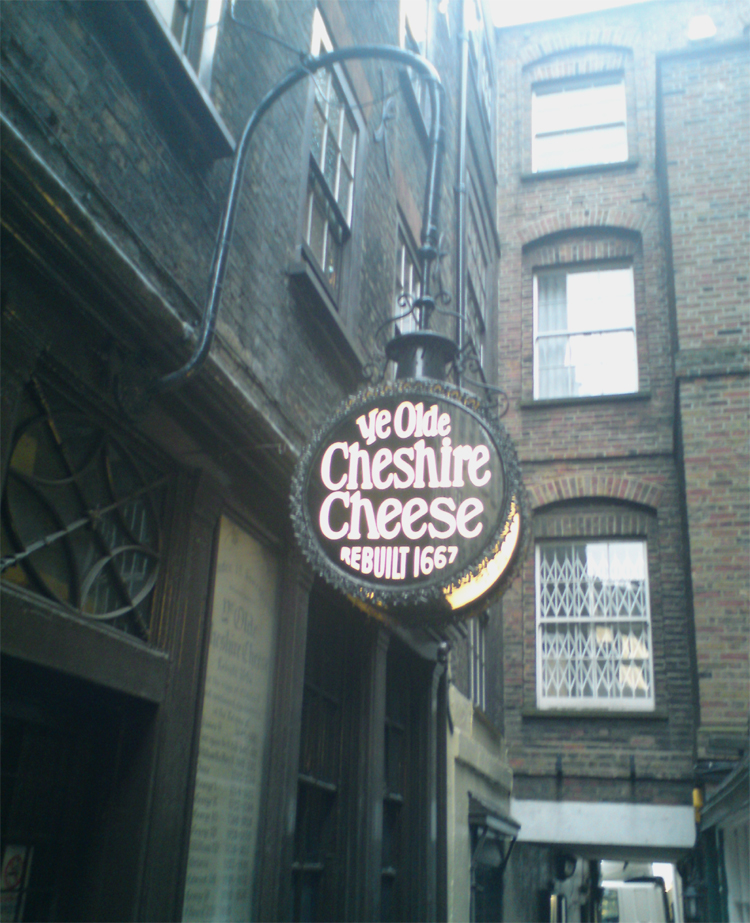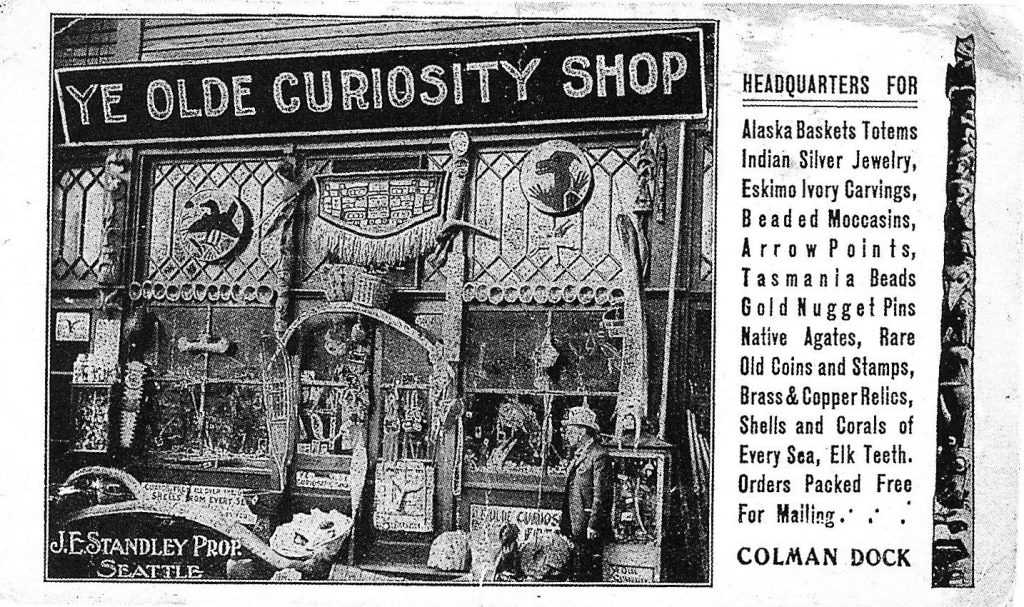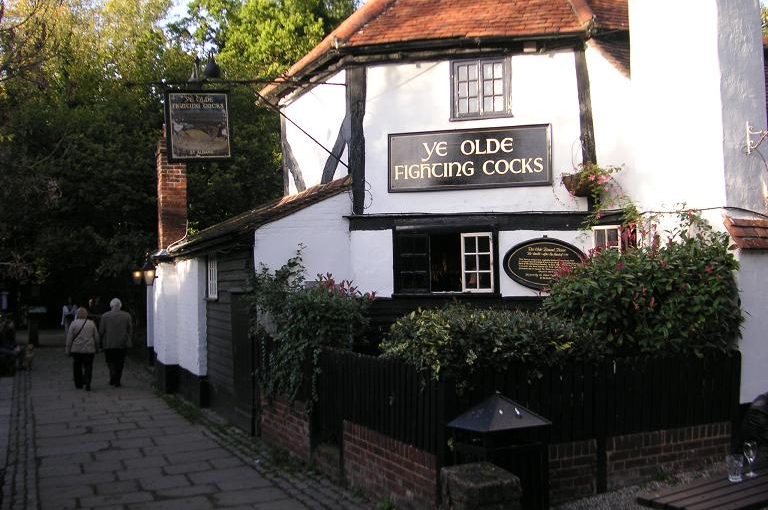This is something that I’ve wanted to share for quite some time but somehow there was always something else that seemed more important at the time. This is it:

I mean the first word: ye. What does it mean, how do you pronounce it and where does it come from?
Actually, the answer is simpler than you’d think: it means the, and it is pronounced ðə (just like the word the when unstressed): It is spelled with a y because the Latin alphabet didn’t have a letter for the ð sound, and there was a time when the letter y was used to represent this sound.
OK, so this was the short version. Here is the slightly longer and more detailed explanation:
Old English had a letter called the thorn: þ. This was used for the sound ð, so what is today written as the, was þe in Old English. In handwriting (and in those days they only had handwriting, of course), þ and y looked very similar and were used practically interchangeably. After a time, the letter þ fell out of use and the sound ð got represented by the letters th instead.

But what about the word olde? Well, it’s just a clever way of making things look, well, old. Or archaic, if you will – because business owners believed that if they manage to make their shop (pub or any other business) look old, it will give the impression of being well-established and reliable, which should mean more customers. Some modern English words had an extra -e at the end in Old English, which people easily recognised as archaic. So pub owners started using the phrase Ye Olde [something] around the middle of the 19th century in the names of their pubs. The word old used to have a number of different spellings: alde, awld, auld – remember Auld Lang Syne? – and ole, but olde was not a frequent version at all. It didn’t matter: it became a popular phrase.
Yes, I know that this is still a somewhat simplified version but I didn’t think most people would want to read a chapter-length explanation of a two-letter word or a two-word phrase.
One final thing: ye was pronounced jiː when used as the second person plural personal pronoun; put simply: you when talking to more than one person.
Read these Wikipedia articles to learn more about the topic:
